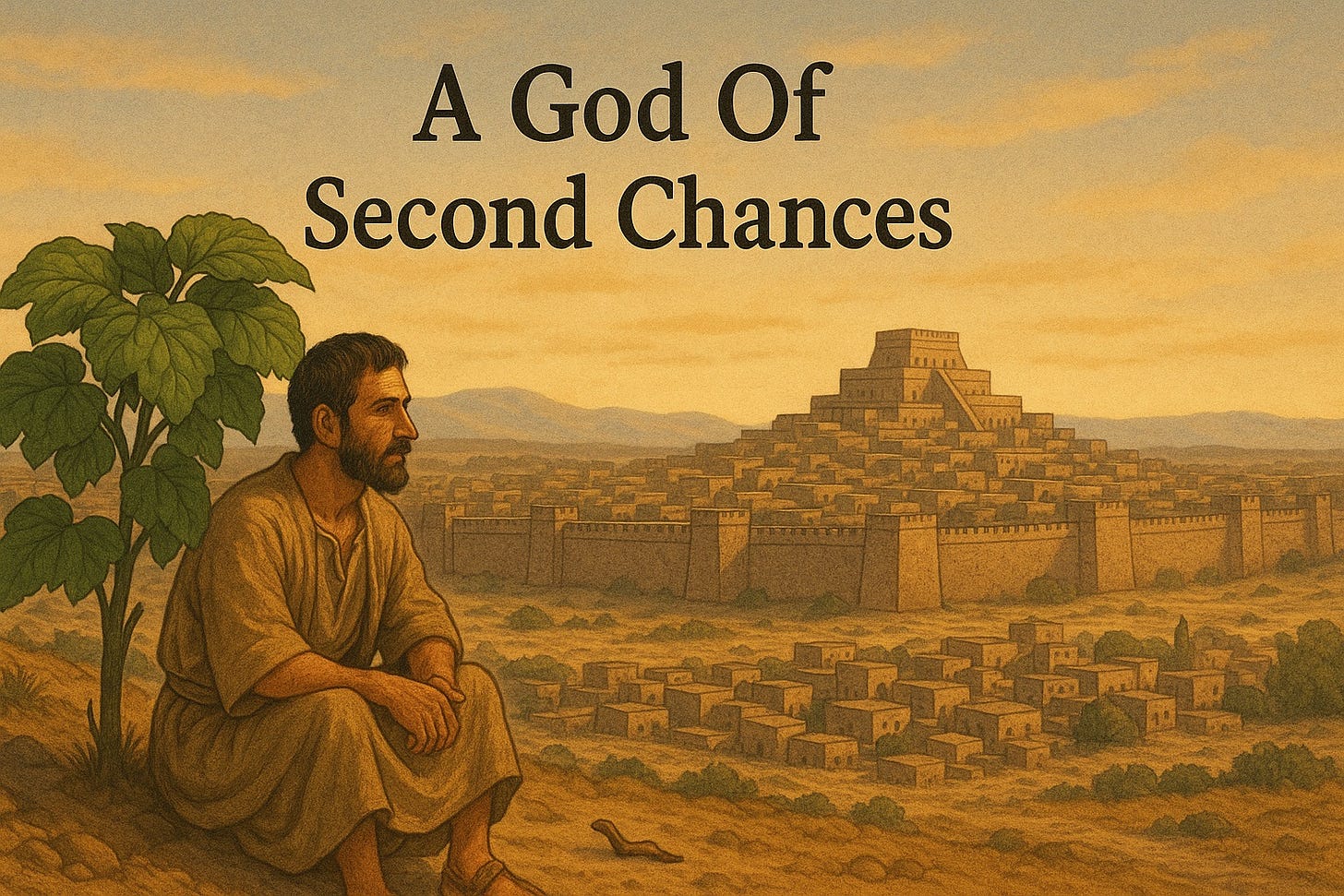A God Of Second Chances
Jonah would rather see the enemies of his people destroyed than to see them be spared by God. May we always rejoice when wicked people repent of their sins.
Jonah 4:1-2
But it greatly displeased Jonah, and he became angry. Then he prayed to the Lord and said, “Please Lord, was this not what I said when I was still in my own country? Therefore in anticipation of this I fled to Tarshish, since I knew that You are a gracious and compassionate God, slow to anger and abundant in mercy, and One who relents of disaster.
The first time you read the Bible without studying it, the book of Jonah may seem strange. Jonah desperately tries to avoid the place God commands him to go, and he gets angry when people repent of their sins. Neither makes much sense until you realize that God was sending Jonah to the capital of the Assyrian Empire, the enemy of Israel and Judah.
MY ENEMY IS NOT ALWAYS GOD’S ENEMY
Not only was Jonah likely afraid for his life, but, as we learn here, he also feared that God would show mercy to his people’s enemies. He preferred to see his enemies destroyed rather than see them repent. When God showed mercy to Jonah’s enemies (Jonah 3:10), God’s mercy angered Jonah.
Sadly, many of us have that kind of mentality. We often prefer to pray imprecatory prayers against our enemies rather than ask God to transform their hearts. There is a time for imprecatory prayers, there is a time for righteous anger, but as J.C. Ryle wrote: “A sinless wrath is a very rare thing. The wrath of man is seldom for the glory of God. In every case a righteous indignation should be mingled with grief and sorrow for those who cause it... It is better never to be angry than to be angry and sin.1”
We would rather see our enemies destroyed than see them repent and become our brothers and sisters in Christ.
FORGIVENESS
Forgiveness doesn’t come easily to us. When we or our loved ones are hurt, we often burn with hatred toward those who have caused the pain. However, as Christians, we should be the most forgiving people, understanding that without Christ, we would be destined to face the Father’s wrath for eternity.
As Christians, we have been forgiven our sins through Christ before a holy God, so how can we withhold forgiveness from another sinner? As Charles Spurgeon put it: “You are nothing better than deceitful hypocrites if you harbor in your minds a single unforgiving thought. 'If you do not forgive... neither will your Father forgive [you].' Those are Christ’s own words. If we do not choose to forgive, we choose to be damned.2”
CONCLUSION
May we always rejoice when sinners turn away from their wicked ways and come to Christ (Luke 15:7). May we encourage them, reminding them that “such were some of you,” once destined for destruction before you turned from your sinful past, but you have now been “washed… sanctified… justified in the name of the Lord Jesus Christ and in the Spirit of our God” (1 Corinthians 6:9-11).
May we rejoice in the second chances given by our merciful God to sinners like us.
J.C. Ryle, Expository Thoughts on the Gospel of Mark, (Life Sentence Publishing, 2020), p.36
Charles Spurgeon, Spurgeon’s Sermons, Volume 13: 1867, (Devoted Publishing, 2017), p. 457




